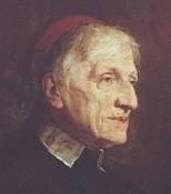The fact that one finds Catholic theologians who remain officially in good standing with the Church -- let alone rank-and-file Joe Sixpacks-- who will say nearly anything, makes it exceedingly frustrating to be an apologist for Catholicism today. It must surely appear at times as though Catholicism represents no more unified a body of doctrine, dogma, and tradition than, say, the Anglican communion, in which nobody gives a flippin' howl what anyone believes.
If you delve into the historical ethos in which these theologians came into their own as scholars, I'm convinced you would see the post-Vatican II 60s-80s in which, under the overweening enthusiasm of "opening the shutters of the Church to the world," Catholic seminaries and individuals cast caution to the wind and dove headfirst into all the latest and most respected developments in Liberal Protestant/Secular historical-critical biblical studies. As a result, a wedge has been driven in the thinking of many of these scholars between inherited traditions of Catholic doctrine and dogma and the so-called "verifiable facts" concerning the "Jesus of history" and the actual "historical" development of the early Church. Thus one even gets a biblical scholar of respected and presumed orthodoxy, like Joseph A. Fitzmyer, for example, saying all sorts of things about the actual historical beliefs of the early Church that cannot be reconciled with Church dogma, illustrating how completely he has imbibed the prevailing Protestant/secular presupposition about the impossibility of interrelating the categories of (1) the "Christ of faith," the "Church's dogmas," beliefs like the "Resurrection," "Christ's founding of the Church on Peter as the Rock," and "Christianity of Paul," etc., with (2) the "Jesus of history," what we can know about "the actual faith of the apostles," or the actual meaning of "biblical texts," etc.
But if the truths of Faith and History stand at all, they stand together, and can no more be divided into categories of "irrational faith" and "faithless rationality" than our most mundane beliefs about our memories, perception of an external world, existence of other minds, etc. Hence, with C. Stephen Evans, I embrace the idea of a "Christ of history" and "Jesus of faith" that completely inverts and deconstructs the prevailing Liberal Protestant/Secular bifurcations.
As to the data and evidence from Scripture and the apostolic and patristic periods, therefore, I hold that there is little reason to doubt that the teaching of the Catholic Church, in its essential outlines, is a seamless tapestry, and a tradition passed down without alien interpolations, in an unbroken and organic development. Hence, I would stand by the Catholic tradition, for example, that Peter was, in fact, the first Pope. And I have no trouble accepting that the threefold offices of bishop, presbyter, and deacon clearly differentiated by Ignatius of Antioch, perhaps even while the last apostle was still living, is clearly if implicitly attested in the Pauline Epistles of the New Testament.
To be continued . . .
Friday, January 23, 2004
Subscribe to:
Comment Feed (RSS)


